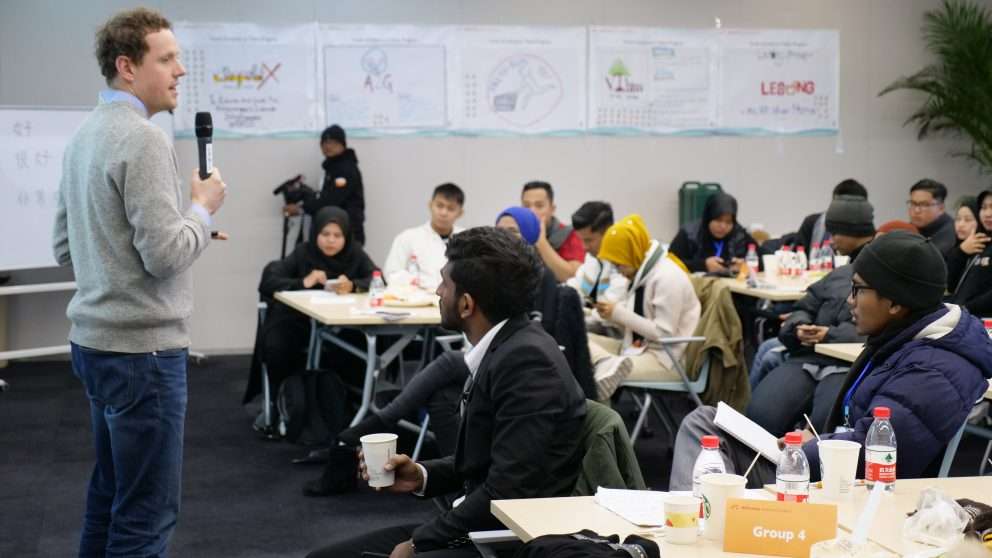A Guide to Training Your B2B Customer Service Team
The fundamental principles that define effective customer service apply across all industries and business types. But certain distinctive characteristics of the business-to-business (B2B) environment can have a huge influence on your approach to training customer service team.
Many B2B companies provide complex, high-value, and business-critical solutions where poor customer support can have significant performance implications for customers. In fact, 51% of B2B companies will avoid vendors for at least two years after a bad customer experience.
Just as important is the fact that B2B companies, unlike their business-to-consumer (B2C) counterparts, compete for a smaller pool of customers. This gives the customer a lot more leverage and makes customer support extremely important.
As a result, where B2C support focuses on simplicity and immediacy, B2B support emphasizes resolutions that may take longer but deliver a superior customer experience.
 |
Click here to download our eBook on why creating great B2B customer experiences is so important to modern business!
|
Traits That Define A Well-Trained Customer Service Staff
The ideal profile for customer service agents would be a blend of aptitude and attitude.
Aptitude refers to customer service skills that can be developed through training. A well-designed B2B customer service training program can equip even a candidate with just a basic understanding of the business with in-depth knowledge about the industry, the company’s policies and processes, and the operational tools required for the job.
Transforming attitudes may not be quite so simple. Inherent qualities such as empathy, attentiveness, positivity, humility, patience, and a problem-solving mindset are important for B2B customer service agents and extremely difficult to teach.
The primary focus, therefore, must be on hiring for attitude and training for skills.
Assessing customer service staff on attitude
Direct measurement techniques like the Likert Model and the Semantic Differential Scale, which have been used to measure perceptions among customers for products or employees for their managers, can be used effectively to create attitudinal and behavioral profiles of B2B customer service agents.
Both these techniques have a broadly similar approach to assessing attitudes in that they require respondents to choose their preferred response to a provided statement or context from a list of possible options. But where they differ is in how these choices are framed and presented.
For instance, this is how each technique can be used to evaluate a candidate’s attitude towards immediacy in B2B customer support:
In the Likert model, the statement “Immediacy is important in B2B support” is presented along with a scale of options from “Strongly Disagree” to “Strongly Agree,” including a neutral response.
On the Semantic Differential Scale, respondents are expected to complete the statement “Immediacy in B2B support is…” by choosing their preferred value between two opposite adjectives, in this case “Irrelevant” and “Imperative”, to indicate their preference.
Companies also use indirect measurement techniques, such as projective tests, to gauge underlying motivations. These tests, like the Rorschach (inkblot) tests, are presented with a degree of ambiguity that allows respondents to express themselves without being affected by social desirability. However, these techniques require qualified professionals and can be quite expensive to administer.
With all of this said, it’s important to include some form of attitude assessment in the recruitment process in order to hire the right candidate for the job.
Training Staff with Required Customer Service Skills
Customer service training programs must focus as much on information-based skills, such as industry insights, company vision, and product knowledge, as they do on behavioral skills, like problem solving and time management. A customer service agent who is equipped with all the relevant information but is unable to apply it to resolve customer problems cannot be expected to enhance the customer experience.
Take the rather common instance of customers themselves being unable to pinpoint the underlying problem. In such situations, true problem solvers are those who will be able to step up and troubleshoot through the details in order to find a solution. Training programs need to impart the ability for customer service agents to cut through unimportant details and get to a solution as quickly as possible, without making the customer feel patronized or rushed.
Similarly, training programs also need to focus on time management skills. This is as important to ensuring your customer service team is efficient and values the customer’s time. While a first contact resolution rate may not be a key metric of success in B2B customer support, your customers still expect a satisfactory and timely resolution to their problems.
To summarize, in order to achieve customer experience excellence, B2B businesses require talent that is the right mix of aptitude and attitude. Training can improve both skills, albeit differently, and should be a key part of any customer service team.
--
Anand Srinivasan is the founder of Hubbion, a suite of free business apps and resources. Read the latest from their blog here.


